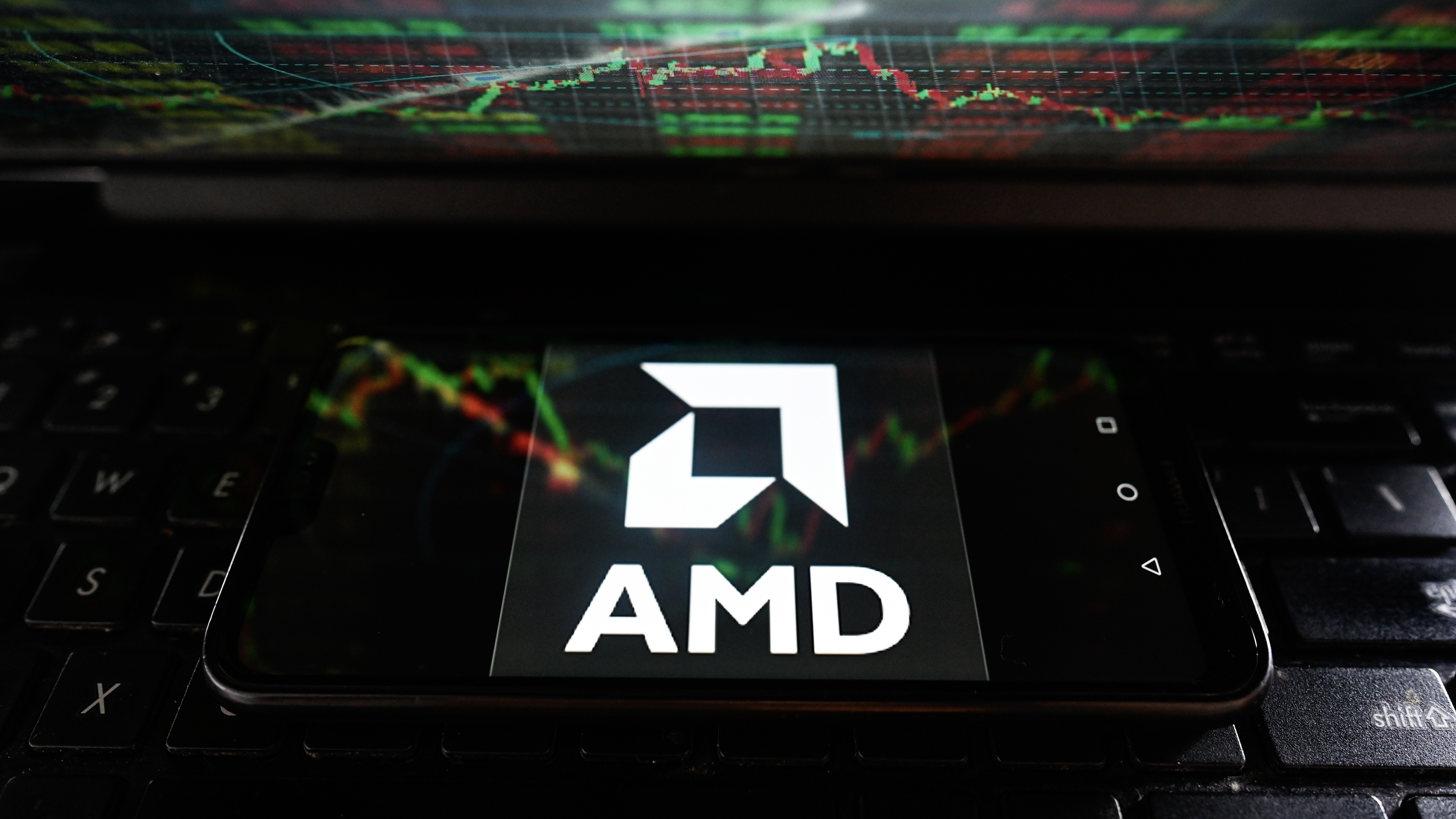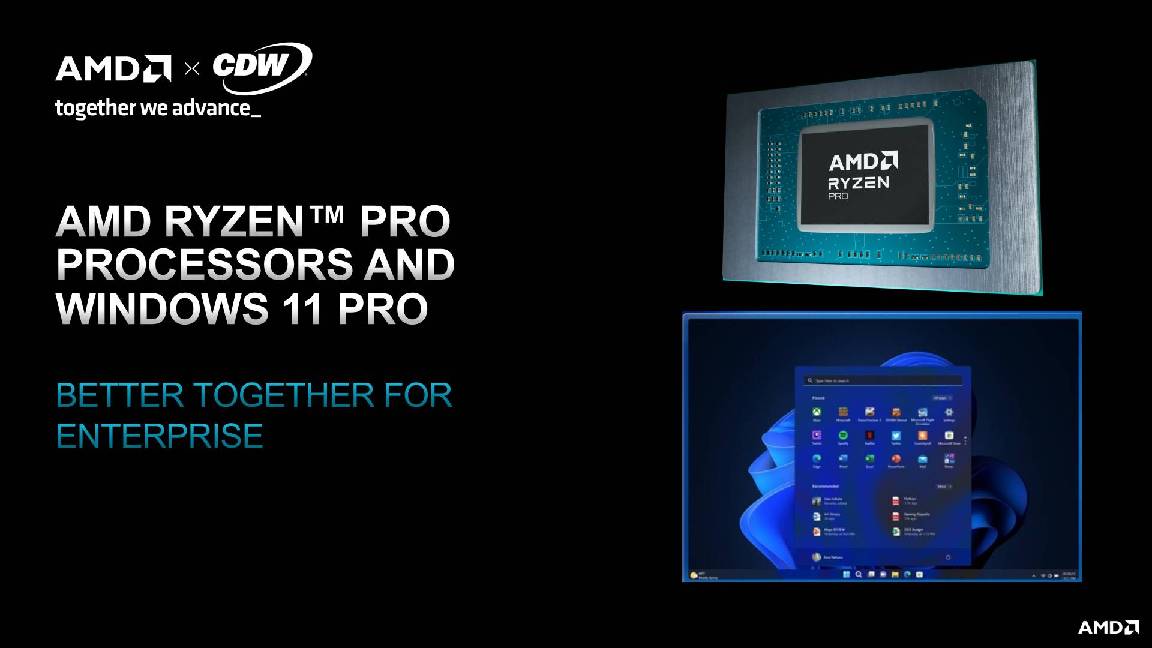AMD's new series of AI-enabled processors likely fall short of Microsoft’s performance requirements for next-gen AI PCs
AMD announces a raft of new AI-enabled processors designed specifically for business devices, but despite performance boosts they still won’t have the compute power to run AI elements locally


AMD has unveiled its latest Ryzen Pro enterprise-focused processors, promising significant performance gains, but they are still unlikely to meet the performance threshold to be designated AI PCs by Microsoft.
The chip giant introduced its Ryzen Pro 8000 series desktop processors and Pro 8040 series mobile processors, both designed for enterprise devices and specialized for an anticipated AI PC explosion in the commercial sector.
However, the AI processing power of these chips appears to fall short of the 40 trillion operations per second (TOPS) standard Microsoft is rumored to have settled on for the NPUs in the next generation of AI PCs capable of running AI workloads locally.
Although Microsoft has not confirmed this standard publicly, the threshold was referenced in a report from market research firm TrendForce in January 2024, as well as by senior Intel executives at its AI summit in Taiwan in March 2024.
This could represent a major setback for AMD, significantly delaying its ability to rollout AI PC-ready hardware and capture the market, expected to boom in 2025.
The chip manufacturer may have to wait until its next generation of Strix Point processors, rumored to be coming later in 2024, before it can start to make headway in the AI PC market.
Improved on-device performance, but still not enough for true AI PC status
The 8000 series chips are AMD’s first AI-enabled desktop processors built for business users, with selected models featuring dedicated NPU AI acceleration engines for improved on-device AI performance.
Sign up today and you will receive a free copy of our Future Focus 2025 report - the leading guidance on AI, cybersecurity and other IT challenges as per 700+ senior executives
The 8040 series mobile processors were similarly talked up, with all but the base spec Ryzen 5 540U model getting AMD’s Ryzen AI and RDNA 3 graphics processing integrated onto the chip to streamline AI tasks and offer 72% faster performance with better efficiency.
For example, AMD claimed the new processors will require 84% less power for video conferencing, with or without AI enhancements enabled, compared to the Intel Core Ultra 7 165U.
Both chips will also feature AMD’s Pro technologies, a set of enterprise-grade manageability and security features integrated at the hardware, operating system (OS), and system level.
The 8000 and 8040 series processors are expected to be available in platforms from OEM partners HP, Lenovo, and selected channel partners starting from Q2 2024.
Both Intel and AMD still one generation away from Microsoft’s requirements for true on-device AI power
The AMD Ryzen AI built into the NPUs featured in many of these new chips will bring dedicated AI processing power in the form of 16 dedicated trillion operations per second (TOPS), and up to 39 total system TOPS.
This falls just short of the 40 TOPS minimum performance threshold Microsoft has reportedly set out in its definitions of an AI PC, which states next generation AI PCs will be able to run AI services like Copilot locally.
On 17 January 2024, market research firm TrendForce published a blog suggesting this benchmark was a minimum of 40 TOPS in processing power, predicting manufacturers will surpass this level by late 2024.
At Intel’s AI Summit in Taipei in March 2024, Intel executives told Tom’s Hardware Copilot elements will be running locally on PCs very soon and reaffirmed the 40 TOPS requirement for NPUs for the next generation for AI PCs.
RELATED WHTIEPAPER

Intel’s flagship Meteor Lake processors ‘ NPUs have 10 dedicated TOPS, and up to 34 total system TOPS, indicating both chip titans will need another generation of processors to get over the line.
As a result, the rollout of AI PCs could be delayed as chip manufacturers rush to improve their NPU performance and meet Microsoft’s requirements for the AI PC label.
It is expected that both will achieve this with their next-generation of processors, Strix Point and Lunar Lake.

Solomon Klappholz is a former staff writer for ITPro and ChannelPro. He has experience writing about the technologies that facilitate industrial manufacturing, which led to him developing a particular interest in cybersecurity, IT regulation, industrial infrastructure applications, and machine learning.
-
 Microsoft unveils Maia 200 accelerator, claiming better performance per dollar than Amazon and Google
Microsoft unveils Maia 200 accelerator, claiming better performance per dollar than Amazon and GoogleNews The launch of Microsoft’s second-generation silicon solidifies its mission to scale AI workloads and directly control more of its infrastructure
-
 Infosys expands Swiss footprint with new Zurich office
Infosys expands Swiss footprint with new Zurich officeNews The firm has relocated its Swiss headquarters to support partners delivering AI-led digital transformation